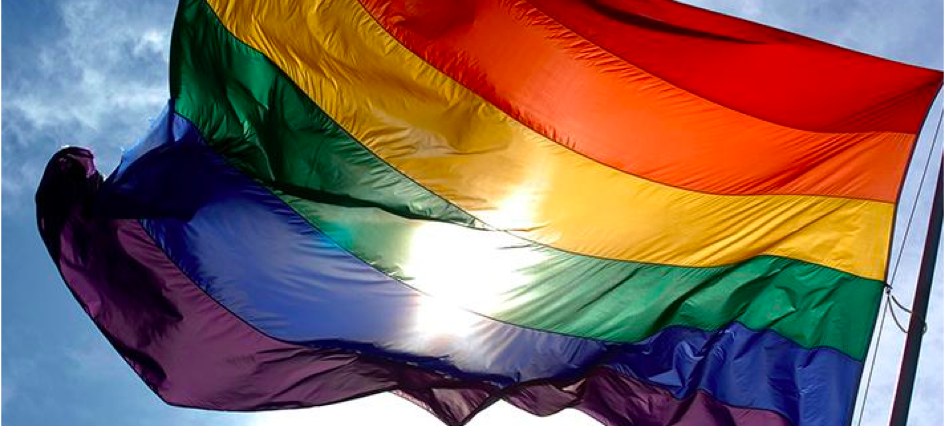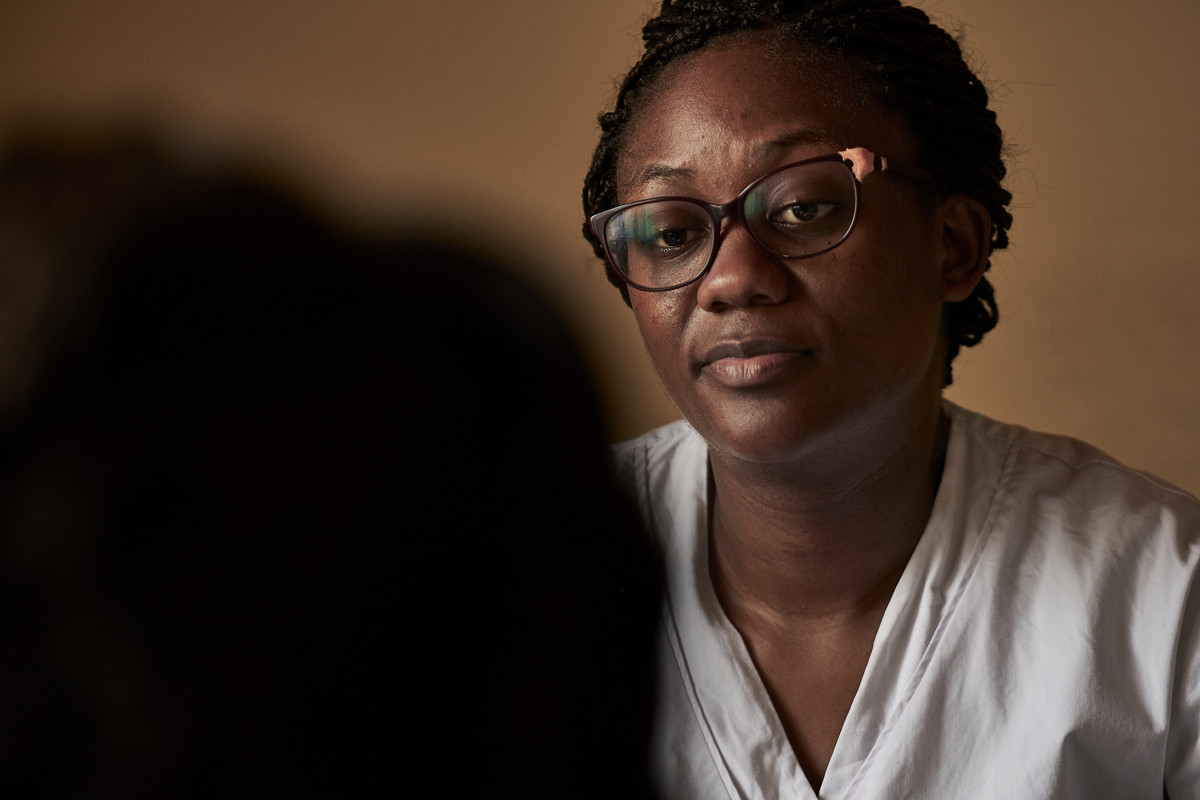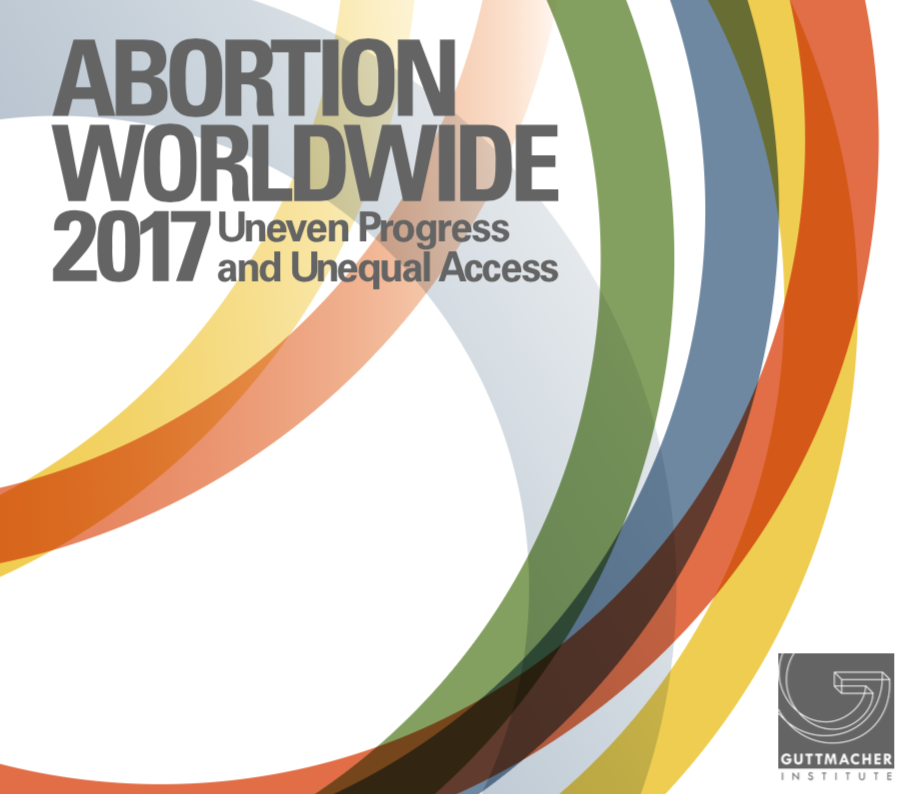
| 09 January 2020
IPPF's new project sets to change discriminatory laws related to sexual orientation, gender identity and expression in 12 countries
IPPF arranged the first meeting of the project group that is tasked to develop IPPF policy and advocacy work on SOGIE issues in Nairobi in November 2019. IPPF has chosen 12 member associations (MAs), two from each IPPF region, for this important work. Participants shared their countries’ political situation and discussed possibilities and strategies for changing restrictive laws and regulations. The participants feedback expressed that they were inspired by the range of advocacy experiences and ideas, the creative solutions to reformulate challenges to opportunities and the wins already achieved. The world has recently seen improvements in SOGIE rights but still around 70 out of 190 countries have criminalizing legislations. Processes of decriminalization using the judicial system was a main discussion. Participants from MAs in India, Botswana and Trinidad and Tobago described how this had been a successful strategy in their countries and what the role of a non LGBTI health and human rights organisation could be. Examples were shared on how to cooperate with LGBTI organisations, including hosting and help initiate them in their formative stages. Some of our member organisations described the success of building and strengthening partner networks over time to enable the building of skills and confidence. The participants also spent time discussing how to ensure institutional strengthening of their organisations ensuring the SOGIE knowledge and competence when carrying out advocacy. Making use of interns and ensuring this competence in the governing boards were among examples given. International human rights mechanisms like the Universal Periodic Review are advocacy opportunities where the organisations are participating through writing shadow reports and reporting the situation on the ground. In addition, there were presentations of how to address public opinion (this film from Romania can be used as an example) and raise awareness of changes that are needed, as well as how to build movements and the importance for collecting evidence and data. All these efforts require funding, thus the participants made advocacy plans that can be used when applying for support. The advocacy plans were made according to the IPPF strategies and the participants discussed how to make use of the IPPF tools. At the end the participants watched the upcoming documentary The Art of Sin about the first gay man from Sudan to come out, by Ibrahim Mursal (co-produced by Sex og Politikk, IPPF’s MA in Norway). The film follows the artist Ahmed Umar as he comes out and explores his identity both in Sudan (where death penalty can be imposed on men who have sex with men) and Norway. List of participants: The participants came from 12 IPPF member associations (MAs), two from each of the 6 IPPF regions in the world: Tunisia (ATSR), Morocco (AMPF), Botswana (BFWA), Kenya (FHOK), India (FPAI), Sri Lanka (FPASL), Nord-Macedonia (HERA), Romania (SECS), Cambodia (RHAC), Indonesia (PKBI), Guyana (GRPA) and Trinidad and Tobago (FPATT) as well as the steering group and the secretariat. The IPPF Steering Committee has one representative from each of IPPF 6 regions: Africa, Arab World, Europe, South East Asia and Oceania, South Asia and Western Hemisphere. The secretariat of the project is based at IPPF Norway (Sex og Politikk).

| 23 September 2019
IPPF joint statement at HRC42
Co-sponsored by Catholics for Choice, Center for Health and Gender Equality (CHANGE), Center for Reproductive Rights, Centro de Promoción y Defensa de los Derechos Sexuales y Reproductivos (PROMSEX), CHOICE for Youth and Sexuality, Danish Family Planning Association (Sex og Samfund), DSW (Deutsche Stiftung Weltbevoelkerung), Fundación Mexicana para la Planeación Familiar, A.C. (Mexfam), ILGA World, International Women's Health Coalition (IWHC), International Campaign for Women's Right to Safe Abortion, International Planned Parenthood Federation (IPPF), IPPF/Africa Regional Office, Irish Family Planning Association, Le Planning Familiar, Mujer y Salud Uruguay (MYSU), Planned Parenthood Federation of American (PPFA), Plan International, Profamilia Colombia, Rutgers, Sex og Politikk, Sexual Rights Initiative (SRI), Swedish Association for Sexuality Education (RFSU), and Women's Link Worldwide. This year we celebrate the 25th anniversary of International Conference on Population and Development (ICPD) and its Program of Action (PoA), a landmark moment for human rights, where 179 countries recognized that reproductive rights are part of existing human rights, and marked a shift to a human rights-based approach to population and development policies, with a focus on ensuring health, equality, empowerment and rights for all while upholding the principles of non- violence, and non-discrimination. Critically, it recognized the centrality of the indivisible, interdependent, and interrelated nature of human rights to issues of population and sustainable development, in line with the UDHR and the Vienna Declaration. Since then, Member States have repeatedly reaffirmed their commitments to the ICPD PoA, including in the 2030 Agenda, and Treaty Monitoring Bodies (TMBs) have significantly built on the rights delineated in the PoA and furthered human rights standards pertaining to sexual and reproductive rights. However, while some progress in implementation has taken place, too much remains to be done. Therefore, we welcome the Nairobi Summit on ICPD+25 which will once again bring together Member States and different stakeholders to mobilize the political will and financial commitments urgently needed to implement the ICPD Agenda, putting the voices and rights of women and girls at the center of conversations, and meet the 3 zeros: zero gender-based violence, zero unmet need for family planning, and zero preventable maternal deaths. As we approach September 28th, the International Safe Abortion Day, whose theme for 2019 is “abortion is healthcare,” we cannot ignore that legal and policy barriers to safe abortion make unsafe abortion one of the global leading causes of maternal mortality*, which in most cases are preventable if all people, especially women and adolescents, have access to safe, legal abortion. Let’s not deny the evidence: safe abortion saves lives. If Member States are serious about ending maternal mortality, the legal, policy, social, cultural and economic barriers to access safe abortion must be addressed. We urge all Member States to make meaningful, measurable national commitments in Nairobi to increase access to safe and legal abortion, in accordance with their legal obligations under international human rights law, in an effort to reach zero preventable maternal deaths, and to commit to report on progress in its implementation. (*Lisa B Haddad, MD, MA, and Nawal M Nour, MD, MPH, Unsafe Abortion: Unnecessary Maternal Mortality, Rev Obstet Gynecol. 2009 Spring; 2(2): 122–126, https://www.ncbi.nlm.nih.gov/pmc/articles/PMC2709326/; Su Mon Latt, Allison Milner & Anne Kavanagh, Abortion laws reform may reduce maternal mortality: an ecological study in 162 countries, BMC Women's Health 2019 19(1) https://bmcwomenshealth.biomedcentral.com/articles/10.1186/s12905-018-0705-y. See also Medecins Sans Frontiers, 2019 Unsafe abortion: a forgotten emergency, https://www.msf.org/unsafe-abortion-forgotten-emergency-womens-health; Susheela Singh, Lisa Remez, Gilda Sedgh, Lorraine Kwok and Tsuyoshi Onda, Guttmacher Institute, Abortion Worldwide 2017: Uneven Progress and Unequal Access (2018) https://www.guttmacher.org/report/abortion-worldwide-2017)

| 27 September 2018
New global medical abortion database launched to increase safe abortion access for women
The International Planned Parenthood Federation today launched www.MedAb.org – the Medical Abortion Commodities Database, which houses information on the availability of quality misoprostol, mifepristone and co-packaged mifepristone and misoprostol (combipacks) at national level. The www.MedAb.org database is a resource for public health professionals seeking information to inform policy and use in reproductive health care programmes. These include public health and service delivery managers, staff involved in safe abortion programmes, donors funding projects on safe abortion and maternal health, policy analysts, clinical service providers and supply chain logisticians. IPPF worked closely with Gynuity Health Projects and Concept Foundation to develop this database to help increase the availability of and access to safe abortion care. www.MedAb.org includes information on brands of mifepristone, misoprostol or combipacks that are registered and available in a country and – for brands of misoprostol and combipacks – have sufficient and objective evidence to indicate they are of good quality. Dr Alvaro Bermejo, IPPF Director-General, said: “A woman controlling her body is a woman controlling her life and building her future. Access to safe and legal abortion saves lives. This means working to enable those on the frontline to give women more options when they need it most. We are delighted to launch this database. It will enable those working on safe abortion to identify, select and procure quality commodities that can be used to provide women with safe medical abortion services.” The database provides collated information on the products that are available in each country. It does not provide counselling, clinical assessments, dosing regimens or other information that is essential for a quality medical abortion service as defined and implemented by IPPF. As a leading advocate and service provider for safe and legal abortion, IPPF has compiled a list of resources and guidance to complement the database related to global abortion laws and policies, WHO guidelines on safe abortion and access to other organizations working to make abortions safe. Links to these resources are available in the External Resources section of www.MedAb.org. The database initially includes information on medical abortion commodities in 89 countries; it will be updated regularly with information on commodities in additional countries, and to reflect changes as necessary. IPPF welcomes feedback, information and updates on the availability of quality medical abortion commodities. For more information, or to provide feedback and updates, please contact [email protected].

| 21 March 2018
IPPF welcomes the release of Guttmacher's report on abortion
IPPF welcomes the release by the Guttmacher Institute of a new report highlighting ongoing disparities in abortion rates and access to safe abortion care between developing and developed regions. These data provide valuable information for organizations like IPPF working to improve access to sexual and reproductive health and rights. A key finding from the study is that, although the global annual abortion rate has fallen between 1990-1994 and 2010-2014, a larger decline occurred in developed countries (where abortion is generally legal and available), but rates have not changed significantly in the developing world, where abortion laws are often restrictive. This demonstrates that restricting access to safe legal abortion does not reduce the number of abortions but rather pushes abortions underground, leading to risks to women’s health and lives. Legality alone does not guarantee access. Governments need to ensure policies are implemented and guarantee a favourable environment where all women - regardless of their ability to pay, age or marital status - can access safe abortion care free of stigma and discrimination. While abortion is a very safe procedure when done in accordance with recommended guidelines, health complications from unsafe abortion - while less serious due to increased access to post-abortion care and increased availability of misoprostol - continue to affect millions of women each year. Developing regions also continue to be disproportionally affected by unsafe abortion, with nearly all deaths due to unsafe abortion occurring in developing countries, the highest number occurring in Africa. As of 2014, at least 22,800 women still die each year worldwide from complications of unsafe abortion; and 6.9 million women in developing regions are treated for complications from unsafe abortions. Very importantly, the study outlines how high levels of unmet need for contraception contribute to higher rates of unintended pregnancy in developing regions, the main reason that women undergo abortion. This shows the relevance of organizations like IPPF working to prevent unintended pregnancy through modern contraceptive services, promote comprehensive sexuality education and eliminate sexual violence and coercion. At the same time, IPPF recognizes that there will always be a need for safe abortion services and will we continue to increase access to safe abortion care through our service delivery outlets while advocating for the decriminalization and de-stigmatization of abortion. Manuelle Hurwitz, Director of Institutional Delivery, IPPF

| 21 February 2018
Sex og Politikk Hosted an IPPF Conference On CSE Best Practises In Oslo
UNESCO recently released revised technical guidelines for comprehensive sex education (CSE), The publication identifies an urgent need for quality comprehensive sexuality education to: provide information and guidance to young people about the transition from childhood to adulthood and the physical, social and emotional challenges they face. tackle the challenges posed by sexual and reproductive health issues, which are particularly difficult during puberty, including access to contraception, early pregnancy, gender-based violence, sexually transmitted infections (STIs) and HIV and AIDS raise awareness of HIV prevention and transmission, of which only 34 per cent of young people around the world can demonstrate accurate knowledge complement or counter the large body of material of variable quality that young people find on the internet, and help them face increasingly common instances of cyberbullying. When UNFPA invited partners to a global conference on CSE in Norway, IPPF and its Norwegian member association Sex og Politikk decided to host a conference on CSE to feed into the Norwegian governments conference. On December 12-13 2017, almost 60 participants from 31 countries were gathered in Oslo, Norway to discuss CSE. In collaboration with IPPF secretariat, its central office and the six regional offices, Sex og Politikk prepared and hosted the conference. All the regions were represented by both member organisation representatives and regional office staff. After the welcoming speech by NORAD director of health and education Paul Fife on behalf of the Government of Norway a panel of CSE best practices around the world set the scene, where we could hear from representatives of IPPFs member associations (MAs) in India, Denmark, Palestine, Togo, Thailand and Colombia. Laura Hurley, technical adviser on youth at IPPF , gave an overview of the upcoming ‘CSE Institute’, which will be launched as a pilot in 2018. The Institute is working with the Swedish, Dutch and Danish MAs to develop technical assistance for other MAs wishing to build their CSE work, as part of the wider ‘Technical Assistance Network’ initiative. Two successful collaborations between IPPF MAs were also presented to inspire participants. RFSU Sweden’s collaboration with RHAC Cambodia on CSE, as well as Sex og Politikk Norway’s collaboration with CFPA Cyprus. A lot of time was set aside for group discussions at the conference, to ensure that everyone had the chance to share their experiences. One of the conclusions was that there is a lot to learn from each other and that there is vital work being done by IPPF and its member associations on CSE around the world. More specifically, the participants agreed on the importance of a multi-pronged approach to CSE, and including the whole community as much as possible both to deliver and to advocate for CSE. Another takeaway was to ensure a holistic approach to CSE on all levels. In many contexts, CSE can be controversial, and it is essential to know your context well in order to navigate the climate wisely. UNESCO, Jenelle Babb, presented the revised technical guidelines on CSE for us. Attendees were glad to learn that the guidelines shift from CSE as ‘prevention’ to a positive framework and that links to the Sustainable Development Goals are included. The conference concluded by agreeing a joint statement. The executive director of Sex og Politikk, Tor-Hugne Olsen, presented this statement to the UNFPA/Norway conference on December 14. By: Marianne Støle-Nilsen, Senior Advisor, Sex og Politikk The full report and summary can be found here.

| 17 January 2018
International Technical Guidance on Sexuality Education
IPPF welcomes the new International Technical Guidance on Sexuality Education, which was published last week by UNESCO in collaboration with UNAIDS, United Nations Population Fund (UNFPA), United Nations Children’s Fund (UNICEF), UN Women, and the World Health Organization (WHO). This Guidance calls for comprehensive sexuality education (CSE) for young people to promote health and wellbeing, respect for human rights and gender equality, and empowers children and young people to lead healthy, safe and productive lives. The Technical Guidance is designed to assist education policy makers in all countries to design accurate and age-appropriate curricula for children and young people aged five and up. Based on a review of the current evidence and best practice from around the world, the Guidance notably demonstrates that high-quality, comprehensive sexuality education: can contribute to delayed sexual debut, increased use of condoms and other contraception methods, and may help promote more positive and healthy attitudes and behaviours regarding sexual and reproductive health is essential to combat the school dropout of girls due to early or forced marriage, teenage pregnancy and sexual and reproductive health issues is necessary because in some parts of the world, two out of three girls reported having no idea of what was happening to them when they began menstruating and pregnancy and childbirth complications are the second cause of death among 15 to 19-year olds The publication identifies an urgent need for quality comprehensive sexuality education to: provide information and guidance to young people about the transition from childhood to adulthood and the physical, social and emotional challenges they face. tackle the challenges posed by sexual and reproductive health issues, which are particularly difficult during puberty, including access to contraception, early pregnancy, gender-based violence, sexually transmitted infections (STIs) and HIV and AIDS raise awareness of HIV prevention and transmission, of which only 34 per cent of young people around the world can demonstrate accurate knowledge complement or counter the large body of material of variable quality that young people find on the internet, and help them face increasingly common instances of cyberbullying. IPPF is committed to increasing access to rights-based, inclusive CSE, and in 2016 we provided over 28 million young people with a quality-assured CSE programme. Our Framework for Comprehensive Sexuality Education supports the provision of CSE that equips young people with the knowledge, skills, attitudes and values they need to determine and enjoy their sexuality – physically and emotionally, individually and in relationships. IPPF has reaffirmed this commitment by including CSE as a key objective of our Strategic Framework and pledging to enable one billion people to act freely on their sexual and reproductive health and rights by 2022. We congratulate all stakeholders who rallied together to produce this Guidance in support of young people’s right to education and information about their sexual and reproductive health and rights.







